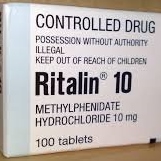click to dowload our latest edition
CLICK HERE TO SUBSCRIBE TO OUR NEWSLETTER


Published
7 years agoon
By
adminGILLIAN KLAWANSKY
The divide between the different schools of thought, often seems unbridgeable. And in certain quarters there is an “embarrassing stigma” attached to Ritalin. Some parents maintain that many teachers would like to see “restless” – or merely “lively” – children medicated, to make their life in the classroom easier.
In a recent programme on Talk Radio 702, spokesman for the Department of Basic Education Elijah Mhlanga, confirmed reports of an increasing use – and abuse – of Ritalin by pupils in private schools.
Jewish schools, however, would not discuss the number of pupils on Ritalin and those who would comment, merely said that while some pupils were on this medication, it was as the result of an appropriate professional prescribing it. There was no discussion about abuse.
According to the Attention Deficit and Hyperactivity Support Group of Southern Africa (ADHASA), South Africa has one of the highest rates of prescribing medication for ADHD – even higher than in the US.
“My experience is that Ritalin and medications like it, are widely used in all private schools, including Jewish schools,” says Johannesburg-based child psychiatrist Dr Brendan Belsham.
“If one considers that the international prevalence of ADHD is six per cent among school-aged children, then clearly there is over-prescription and overuse of these medications in certain sectors of society. ADHD is certainly over-diagnosed in more affluent communities.”
“There are several reasons for this. One is the increasing use of stimulant medications for performance enhancement – to help with studies or learning, in the absence of a proper diagnosis. Another is the misdiagnosis of other conditions such as anxiety disorders as ‘ADHD’.”
Dr Belsham, who has many Jewish patients, says: “Seeing many Jewish families in my practice, both religious and more secular, I’ve observed an ethos of accepting medical explanations and pursuing medical treatments, which can be a double-edged sword.
“On the one hand, it’s wonderful to work with a progressive mindset regarding neuropsychiatric matters and it allows children access to the help they need, but on the other it’s sometimes overly reductionist [tendency to reduce complex matters into overly simplified one-dimensional diagnoses].”
Reductionism, however, is largely a reflection of the times. Quoting his book, “What’s the fuss about ADHD?”, Dr Belsham says: “A particular error of our age is that of medical reductionism.”
This is because a doctor may prefer to simply offer a treatment for an identifiable problem or a parent may prefer a label for a condition rather than have to examine their parenting or other factors, he writes.
“However, there are also frustrating examples of parents and/or children who refuse much-needed treatment.”
This is largely the experience of Ruth Ancer, a Jewish clinical psychologist based in Blairgowrie, whose patients include children from surrounding private schools. She argues that parents – Jewish and otherwise – are in fact reluctant to put their children on Ritalin, often to the detriment of the child.
“It’s because of negative stories they’ve heard, or a lack of understanding of what it’s used for. I struggle to get parents to acknowledge that their child will benefit from medication,” she says.
There obviously needs to be a proper diagnosis, though, cautions Ancer. It can’t just be prescribed because there are behavioural issues or the teacher says the child needs it – it’s vital that the child is assessed.
“You cannot fix all emotional and behavioural problems with medication, otherwise you may miss the underlying factors contributing to the difficulties. Incorrectly attributing them to ADHD means you may lose an opportunity for them to be appropriately addressed.”
“However, if there’s a diagnosis of ADD or ADHD through a proper educational assessment administered by an appropriate medical professional, Ritalin is a lifesaver and can have the most significantly positive impact on the child’s ability to learn and on their emotional and psychological state,” she adds.
“Parents who are just opposed to Ritalin because it’s Ritalin, often are doing their children a huge disservice.
“If there is no medication given for ADHD, where impulsivity is also a problem, the child will also be at risk for high-risk behaviour when they get older.”
“If the medication (Ritalin) is correct for the child, it shouldn’t only assist with the core symptoms of ADHD – inattentiveness, hyperactivity, impulsivity – but the overall well-being and self-esteem of the child should also improve,” says Belsham. “As with any medication, there can be side-effects, but with proper monitoring – which is vital – these can usually be minimised and managed.”
There are, of course, alternatives to Ritalin for children suffering from ADHD. “Other treatments include both medication like Concerta or Strattera and non-pharmacological interventions, for example, parent management training, minimising electronic screen exposure, adequate sleep, regular exercise and so on,” He adds, in serious cases, Ritalin is often the right solution.
“There are three groups of specialists who deal with ADHD: child psychiatrists, developmental paediatricians, and paediatric neurologists,” says Dr Belsham. Clinical or educational psychologists also administer and interpret the educational assessments that diagnose ADD and ADHD.
